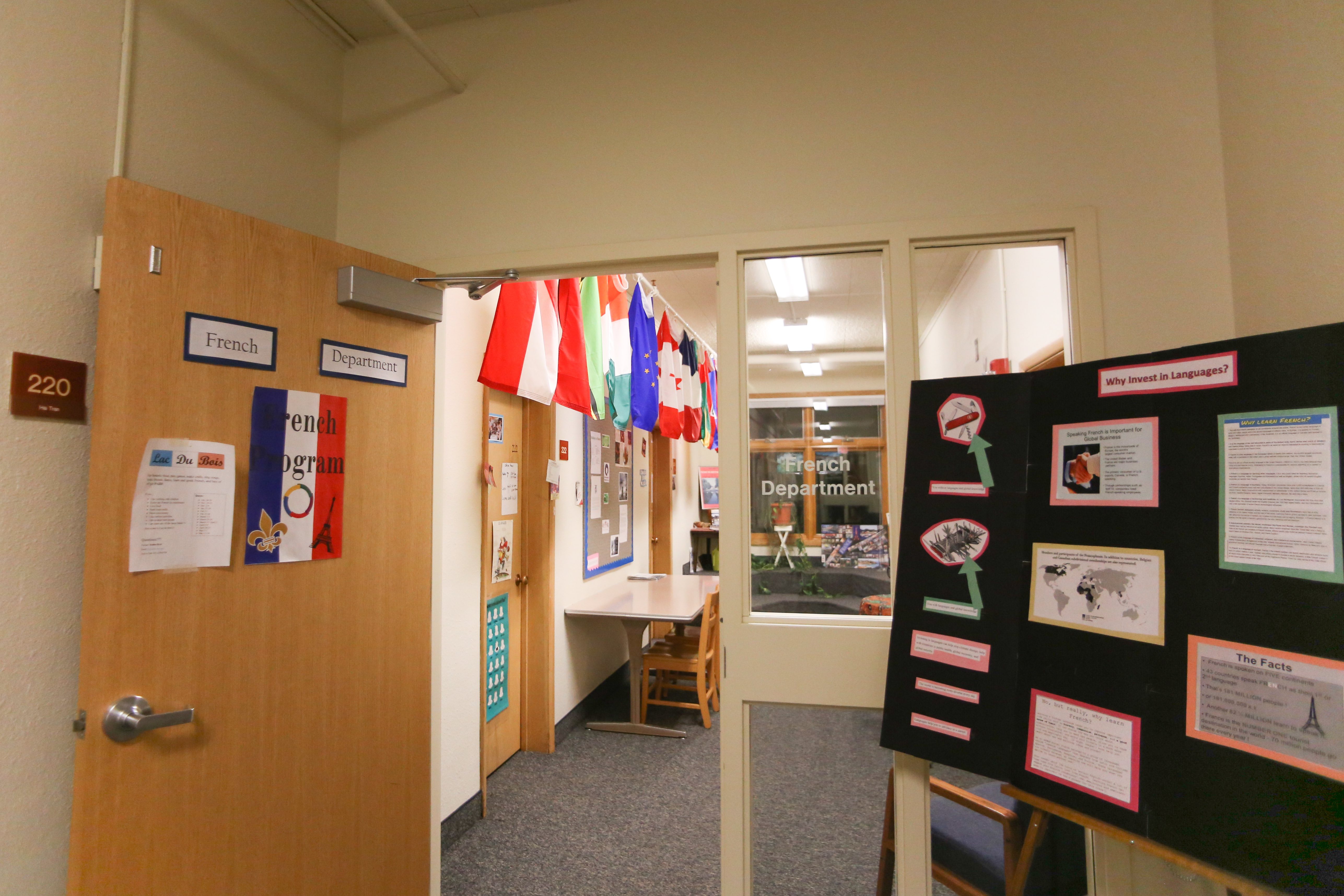
Due to low enrollment over the past couple of years, Concordia had to undergo intensive budget cuts last year. In the midst of these cuts, one major point of controversy was the decision to cut the French major. Since then, the program has seen a huge revamp.
Concordia’s Chair of World Languages, Dr. Mary Rice, said that the low enrollment did not come as a surprise since the birth rate had dropped twenty years ago.
“We graduated the largest class that we’ve ever had at Concordia about five years ago, and then we’ve recruited the smallest classes we’ve ever had,” Rice said. “So, the college needed to do some downsizing of the faculty to put the faculty in line with the new reality of what’s going to be our size for the next several years.”
While the French major was originally cut because of the low number of students pursuing the degree, the department decided to revamp and try to keep their program, Rice said.
French Professor Dr. Gay Rawson said that students and faculty both felt that it was important for students to have the opportunity to be able to major in French.
“A lot of students were very active last year in sort of saying, ‘Well if we’re supposed to be BREWing and if we’re supposed to be global, we need a French major to be able to do it,’” Rawson said. “Their energy and several factors led me to want to re-propose a new major.”
Many of the same students who were calling for a return of the French major last year are excited to see its return – even if it doesn’t benefit them. Kailee Byrd, French major, has seen the consequences on students when the French program was terminated.
“I already had a declared French major, but I have friends that are freshman and it affected them greatly, because they wanted to be French education … and they weren’t allowed to declare it because it wasn’t a major anymore,” Byrd said. “So, if it wouldn’t have gone through they would’ve had to transfer.”
In order to do the revamp, the French department had a chance to look at programs from other schools and look at a lot of different ways the French major could be changed. Edits to the curriculum are still being worked on, but a lot of changes have already been made. One of the big differences so far is a flipped classroom model for the first-year program.
“There’s a perception that language classes are what people say is ‘drill and kill,’ where we teach you how to conjugate your verbs and then we practice conjugating them and that’s what you do in class,” Rawson said. “I don’t think we were ever doing that, but now we’re doing that even less.”
Instead of the “drill and kill” method, the department will now require students to watch videos on grammar and sentence structure before class. According to Rawson, this will help the teachers to know what students have already been introduced to and what still needs to be worked on in class.
As a whole, classes in the department will now be centered more around task-based activities, partner work, solving problems and using the language to dig into the culture. The textbook for the second-year class was even removed.
“The students actually pick the learning content,” Rawson said. “We have to cover French in the Americas in 211 … but they pick how we do it, they pick where the emphasis is, they construct the knowledge of the class together, and so they do research and bring it to class and say, ‘I think we should pursue this,’” Raswon said. “It really is student-centered learning. … All of these negotiations about what we should study and why, the students have to make that argument in French. It’s really amazing.”
One year after originally being cut, faculty have agreed that the revamp was well worth the effort.
“[The revamp] was something that was frustrating at the time, but ended up being a wonderful opportunity to make some changes that we wanted to make,” Rawson said.
Thanks to these changes, the French program has seen a drastic revamp and an accepted new major that is more vibrant than ever.

